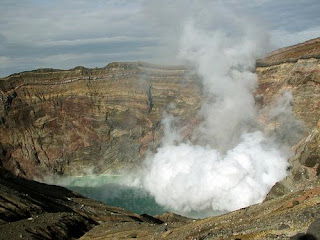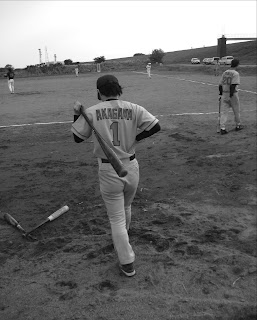Since this is Christmas Eve, you may have been expecting a post about festive season activities. Well, this isn’t that. Don’t worry. I will make a post reviewing Christmas and New Year when those events have finished. Today’s post is about something entirely different.
For the last nine months, I have been studying Japanese in my spare time. I have been quite diligent and learnt a lot, although I still only know about 0.1% of what I need to know! All this time I have struggled with the question of whether I should be bothering to learn Japanese at all. I definitely think that it is worth learning the standard phrases so that you are able to survive, but what about going beyond that? What about studying a second language for years on end so that you become highly proficient? Well, that is the subject or today’s post.
The only reason for becoming highly proficient in a second language
After much thinking I have concluded that the only time anyone should learn a second language to a highly proficient level is if they need to in order to regularly communicate. None of the other reasons advanced for learning a second language, in my opinion, are valid.
The three reasons I have heard for learning a second language (other than communication) are (i) it helps you understand another culture, (ii) it builds memorisation skills and (iii) it helps you better understand your native language. As for the (i), I think the most effective way to understand another culture is to study that culture. I agree that language is an important part of culture but I think you will get a sufficient understanding of how a country’s language is different from your own by simply reading about the fundamentals of the language. There is no need to undertake the laborious task of memorising every word you know in your native language in a second language.
As for (ii), I agree that memorising many words in a different language is likely to build your memorisation skills but surely it would be better to build such skills by memorising something that you are likely to use on a regular basis? If you are not going to regularly use a second language on a regular basis, there is little point in memorising so much information regarding it. Further, I question whether memorising large volumes of material is a good in itself. The ability to analyse and create is far more valuable than the ability to slavishly “wrote learn” material. Every advance has been made through the creation of a new method or being able to discern something which was not immediately apparent. Memorisation is at odds with this. Perhaps focusing on memorisation even damages such skills.
As for (iii), I think it is obvious that the best way to understand and improve your native language is to study it. Studying a second language (which may have very little in common with your native language) is a very circuitous way to go about improving your native language.
Some might say that learning a second language opens up career, study and travel opportunities. I agree, but this is an example of learning a second language for the purpose of communication, which I have already acknowledged is the only valid reason for learning a second language.
Should native English speakers become highly proficient in a second language?
I was wondering how many English speakers, both native and non-native, there are in the World. Unfortunately, no-one really knows. The answer to this question largely depends on how proficient someone must be at English to be considered an English speaker. Some people estimate that there are as many as 2 billion English speakers in the World, which means English has more speakers than any other language. If you accept the figure of 2 billion, less than 20% of English speakers are in fact native speakers, which makes the native English speaker quite a rare creature. Even if you only count native English speakers, English is the most widely spoken language in geographic terms and more countries have English as their official language than any other language. The result of all these facts is something most of us already know: if you already speak English is it very unlikely that you need to learn another language to regularly communicate.
I acknowledge that some native English speakers may need to learn a second language due to their particular circumstances. These circumstances are largely unique to each individual but nationality may have some influence. In this regard, I was wondering what is the worst country on Earth for learning a second language. Firstly, it has to be a country that has English as its official language. Secondly, it has to be a country which is geographically isolated from speakers of another language. This second factor rules out the UK (close to Continental Europe), Canada (all those Quebecoise!), the USA (Spanish is spoken by so many people in the South West) and South Africa (Afrikan). I think the winner would have to be Australia or New Zealand.
So, for the reasons above, I do not think most native English speakers should become highly proficient in a second language. There is simply no reason to be.
If not highly proficient, how about utterly incompetent?
You have probably noticed that I have been saying that native English speakers should not become “highly proficient” in a second language. I still think that native English speakers should learn a small part of a second language, in certain circumstances, for reasons other than communication. I think there are two such circumstances.
Firstly, I think school students should be made to learn a second language for at least two years. This is because school should introduce children to as many areas of study as possible so that they can determine what interests them. For this reason, drama, sport, music, geography and various other subjects are all taught in schools.
Secondly, I think that foreign tourists should make an effort to learn some basic phrases when on holiday as a show of respect to the inhabitants of the country they are visiting. In most cases, reciting something you have learnt from the back pages of a guide book is not going to do much to breakdown the language barrier but it is more polite than assuming everyone on Earth speaks your language.
So what should native English speakers do?
If you are not a native English speaker who needs to learn a second language for the purposes of regular communication, what should you do? I think the answer is obvious: make sure that your English is as good as possible! I think that every native English speaker is capable of improving their spoken and written English. This is an ongoing challenge. Everyone could be a better public speaker, everyone could be more widely read and everyone could have a larger vocabulary.
Finally, I hope this post is not interpreted as a self-important native English speaker ranting about how every other language on Earth is rubbish. Not true. I find Japanese fascinating. While I am in Japan, I will make an effort to learn as much as I can in my free time. However, we must acknowledge that learning a second language is a time-consuming activity which is not worth pursuing unless there is a reason to do so. This is the case regardless of whether your native language is English or not.
Thank you for reading and take care
Our Man in Japan
























